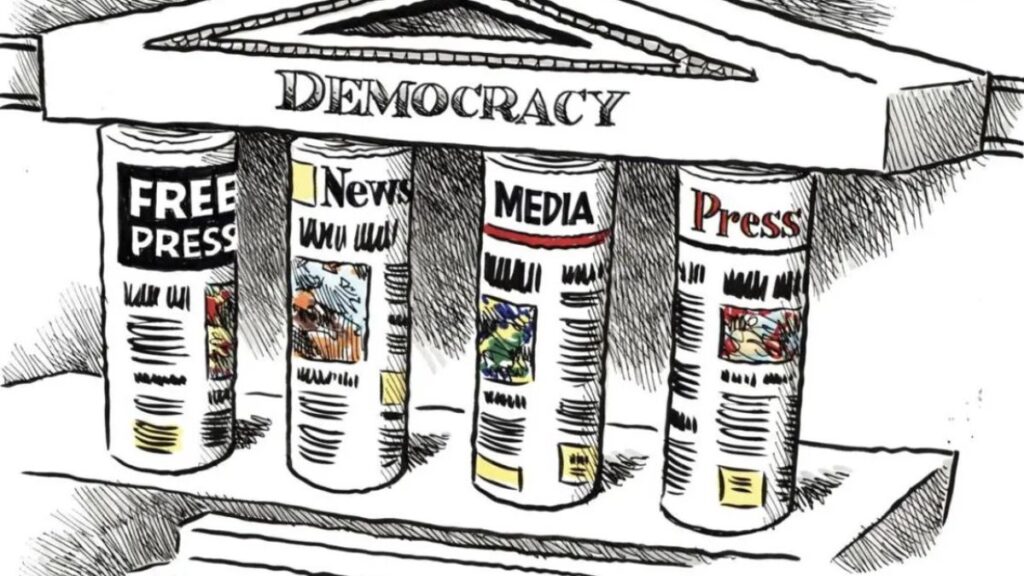In any thriving democracy, news plays a pivotal role that goes far beyond merely reporting events. It serves as a cornerstone of informed citizenship, public accountability, and governmental transparency. As societies evolve and media landscapes shift—particularly with the rise of digital platforms—the role of news in shaping democratic values becomes even more essential and complex. This article explores how news functions within democratic frameworks, its influence on public opinion and political behavior, and the challenges it faces in an era of misinformation and polarization.
News as a Pillar of an Informed Citizenry
At the heart of any democracy lies the principle that citizens must have the freedom and the capacity to make informed decisions. This process heavily relies on the news media, which acts as a conduit for facts, analysis, and diverse perspectives. Informed voters are the bedrock of a healthy democracy, and the news equips them with the knowledge necessary to participate meaningfully in the political process. Whether it’s understanding policies, evaluating candidates, or grasping the implications of legislation, news outlets play a critical educational role.
In democratic societies, the news functions as a public service. Its job is not only to inform but also to educate and empower. Citizens who regularly consume news are statistically more likely to vote, engage in civic discussions, and hold opinions that are grounded in current events. This awareness helps prevent authoritarianism by keeping power in the hands of a populace that understands its rights and responsibilities. Furthermore, democratic decision-making is undermined when misinformation flourishes or when critical issues are obscured from public view. The news media, in this regard, acts as a safeguard against ignorance and manipulation.
The Watchdog Function of News in Democracy
One of the most celebrated roles of news in democracy is its watchdog function. In theory and often in practice, the media serves as a check on political and corporate power by holding those in authority accountable. Investigative journalism, in particular, plays a crucial part in exposing corruption, abuse, and inefficiencies that might otherwise go unnoticed. Historical examples, such as the Watergate scandal uncovered by The Washington Post or the Panama Papers exposé, highlight how news can lead to real-world consequences including political resignations and legislative reform.
This watchdog role is a manifestation of the democratic ideal of transparency. By scrutinizing the activities of the powerful and amplifying the voices of the marginalized, news organizations help level the playing field in societies that often struggle with inequality and injustice. A free press ensures that no single institution—government, business, or otherwise—remains beyond reproach. This oversight is not only a service to the public but a foundational element of democratic governance.
However, the strength of this function varies widely depending on media freedom. In authoritarian regimes or pseudo-democratic systems, news is often censored, co-opted, or controlled. In such environments, the watchdog role becomes neutered, and the news may serve propaganda purposes rather than democratic ones. Hence, freedom of the press is not just an ancillary right—it is central to the very concept of democracy.
Shaping Public Opinion and Political Discourse
The influence of news extends into the domain of political discourse and public opinion formation. Through its framing, tone, and editorial decisions, news coverage significantly affects how people interpret events, issues, and individuals. The agenda-setting theory in communication studies argues that while the news may not tell people what to think, it certainly tells them what to think about. In this sense, the media becomes a powerful actor in shaping democratic conversation.
For example, sustained coverage of climate change or income inequality can elevate these issues in the public consciousness, thereby influencing policy agendas and election platforms. On the other hand, sensationalism or excessive focus on divisive topics can exacerbate polarization. In democratic societies where pluralism is valued, the media’s responsibility is not just to reflect public opinion but to foster nuanced discussion.
Bias in the news—whether real or perceived—can also affect democratic cohesion. When media outlets align closely with political ideologies, audiences may self-select into information silos that reinforce existing beliefs, a phenomenon known as echo chambers. This undermines the democratic ideal of open dialogue and compromise. It is imperative, then, that news outlets strive for fairness, accuracy, and inclusivity to maintain their legitimacy and influence.
The Digital Revolution and the Democratization of News
In recent decades, the digital revolution has fundamentally transformed how news is produced, consumed, and disseminated. The rise of the internet, social media platforms, and mobile technology has democratized news production by lowering the barriers to entry for content creation. Bloggers, citizen journalists, and independent media organizations now compete with legacy institutions for attention and credibility.
This development has had both positive and negative ramifications for democracy. On the positive side, the digital age has diversified the media landscape, giving voice to groups historically underrepresented in mainstream news. Social media has allowed activists to raise awareness, organize protests, and challenge dominant narratives. It has also enabled real-time reporting and interactive engagement with audiences.
On the downside, the deluge of information has made it increasingly difficult for consumers to discern credible news from misinformation or disinformation. The spread of fake news, often through algorithm-driven platforms, poses a serious threat to democratic stability. When large segments of the population base their decisions on falsehoods, the integrity of elections and public discourse is jeopardized. Furthermore, the economic model of online news—driven by clicks, shares, and engagement—can incentivize sensationalism over substance.
Challenges to the Integrity and Trust in News
Trust in news media has declined in many democracies, driven by perceptions of bias, corporate influence, and partisanship. This erosion of trust is troubling because the legitimacy of democratic institutions often depends on a well-informed and trusting citizenry. When people no longer believe in the objectivity of the news, they are more susceptible to conspiracy theories, propaganda, and disengagement from civic life.
Several factors contribute to this crisis of trust. The 24-hour news cycle encourages superficial reporting. Corporate ownership can lead to conflicts of interest. The blurring of lines between opinion and factual reporting further muddies the waters. Moreover, political leaders sometimes attack the press to discredit unfavorable coverage, branding legitimate journalism as “fake news” and undermining the role of the media as a democratic institution.
Restoring trust in news requires a multifaceted approach. Media literacy education can empower citizens to critically evaluate news sources. Journalistic standards must be reinforced, with emphasis on transparency, corrections, and accountability. Nonprofit and public interest journalism models may also offer alternatives to profit-driven media, ensuring that public service remains at the heart of news.
The Future Role of News in Strengthening Democracy
Looking forward, the news media must adapt to preserve and enhance its democratic role. Innovation in journalism—such as explanatory reporting, collaborative investigations, and AI-assisted fact-checking—holds promise in enhancing the depth and reliability of information. Media organizations need to embrace these tools while maintaining journalistic integrity and public accountability.
Equally important is the active participation of citizens in shaping their media environment. In democracies, the relationship between the public and the news media is reciprocal. A more engaged audience demands better content, supports independent journalism, and resists the spread of misinformation. Ultimately, the health of democracy and the quality of news are inextricably linked.
To protect this relationship, policies that support press freedom, combat disinformation, and foster media pluralism are essential. Governments must resist the temptation to control or co-opt the press. Civil society organizations should advocate for open access to information. Tech platforms must be held accountable for how news content is promoted and moderated.
Conclusion
The role of news in democracy cannot be overstated. It informs the public, holds power to account, shapes political discourse, and reflects societal values. Yet it also faces profound challenges in an era marked by digital disruption, political polarization, and declining trust. To ensure that news continues to serve as a cornerstone of democratic life, both media institutions and the public must commit to upholding its principles. A vibrant, independent, and trustworthy news media is not a luxury—it is a necessity for democracy to function and flourish in the 21st century.



